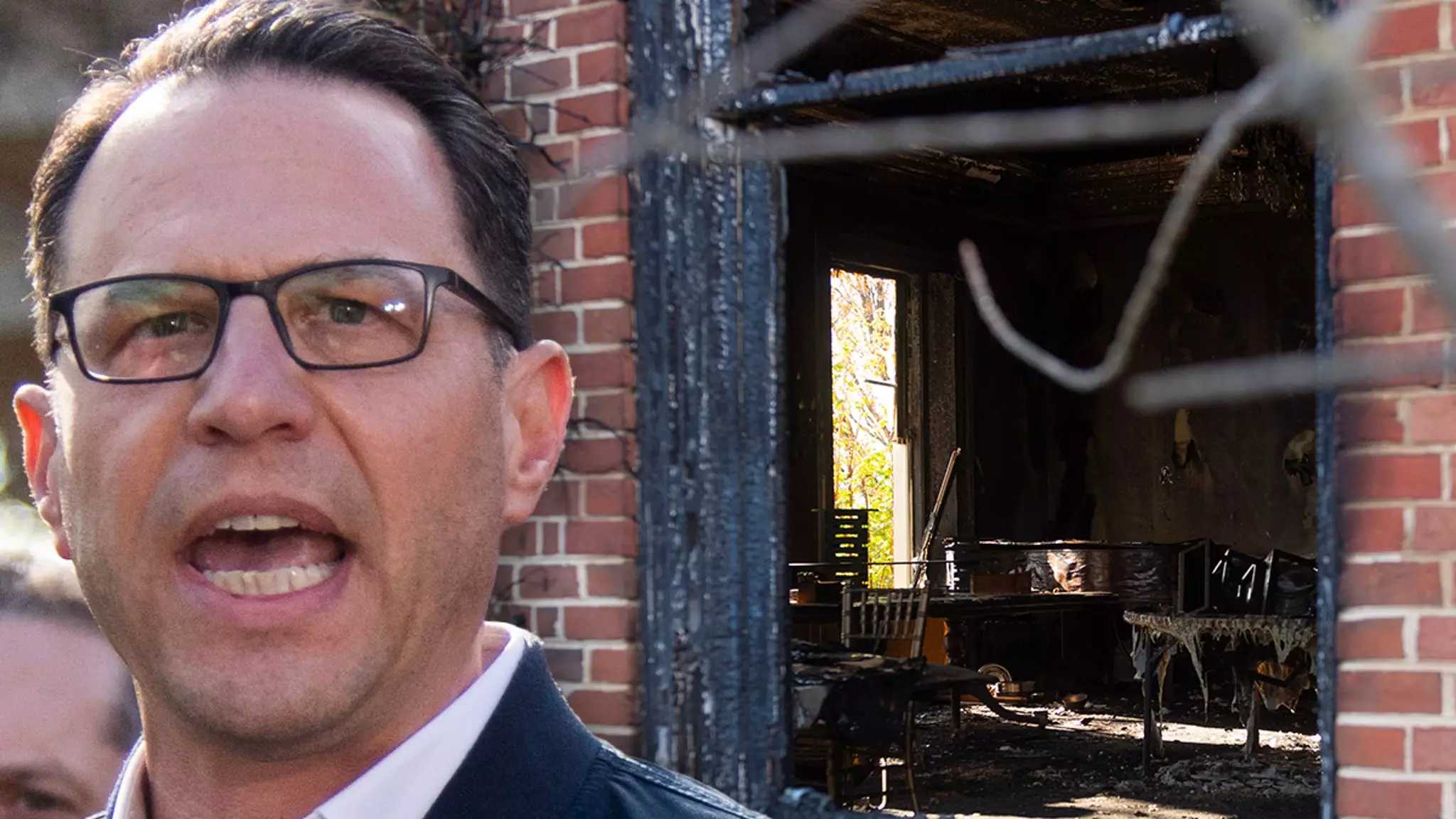In an alarming incident reflective of societal turbulence, the Pennsylvania Governor’s Residence was not just a symbol of governance but a stage for a stunning act of aggression. Following a peaceful Passover celebration, Governor Josh Shapiro and his family found themselves abruptly evacuated when a man, alleged to be Cody Balmer, set fire to the residence. The gravity of the disturbance was underscored by the image of scorched interiors and shattered windows, revealing a stark contrast between the warmth of familial gathering and the chilling intent behind the flames.
The Face of Malice: Cody Balmer’s Actions
Cody Balmer, a 38-year-old resident of Harrisburg, has been arrested and charged with serious crimes including attempted murder and arson. His chilling incursion into a space meant for community and familial bonds reveals the sinister undercurrents that can manifest even in the most secure environments. Authorities argue that Balmer’s actions were premeditated, involving a homemade incendiary device—an unsettling reminder of how readily accessible tools for harm can serve the dark desires of the misguided. The act was not merely a spontaneous outburst of anger but rather a calculated attack that sought to delegitimize the very sanctity of communal celebration.
Emotional Ramifications and Cultural Impact
The implications of this incident reach far beyond threats of violence; they dissect the societal fabric of Pennsylvania itself. The Governor, who had been celebrating one of the most significant Jewish holidays—an occasion symbolizing liberation from bondage—was abruptly confronted with a harrowing reminder of intolerance and animosity. Shapiro’s acknowledgment that the attack may have been motivated by anti-Semitism is an important catalyst for dialogue. His assertion, “I refuse to be trapped by the bondage that someone attempted to put on me,” encapsulates a defiance that rejects submission to fear. It reflects a collective spirit that seeks to combat hate with resilience and communal strength.
Political Violence: A Societal Ill
As Shapiro addressed the media, his messages extended beyond the immediate context of the incident. He articulately decried political violence, emphasizing that regardless of affiliation, acts of aggression are indefensible. This stance opens the door to introspection, inviting citizens to consider the impact of divisive rhetoric prevalent in today’s political landscape. When leaders foster dialogue rooted in division rather than unity, it sets a dangerous precedent. Shapiro’s unwillingness to normalize such actions should be a clarion call for voters and policymakers alike to prioritize inclusivity over animosity.
Moving Forward: A Call for Community Strength
In the aftermath of this tragic event, the importance of community cannot be overstated. The spirit of unity reflected in Passover celebrations serves as a powerful counter-narrative to violent extremism. Individuals and advocates must channel their energies towards fostering a climate of understanding, empathy, and cooperation. Beyond mere messages of solidarity, tangible actions aimed at bridging divides are essential in ensuring that events such as these do not define our collective future. The pathway forward lies in reaffirming commitments to protect freedoms—both sacred and secular—while cultivating spaces where diversity is celebrated rather than attacked.

